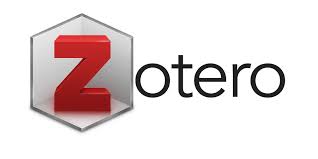Etnomatematika untuk Meningkatkan Kemampuan Pemecahan Masalah Matematis Siswa
DOI:
https://doi.org/10.29240/ja.v2i2.2235Keywords:
Ethnomatematics, Problem SolvingAbstract
This study aims to see the effects of ethnomatematics in improving students' mathematical problem skills. This research uses literature study method. In this research, the knowledge, ideas, or findings contained in it are studied, so as to provide theoretical and scientific information related to ethnomatematics in improving the ability of mathematical problems. The data analysis technique includes 3 stages are: 1) administration; 2) synthesis; and 3) identification. From existing studies, learning that applies ethnomathematics in it, both as a medium and as an approach, has a positive impact on the learning process, because learning is more directed and students feel happy while learning, because students can be directly involved in the learning process. The use of ethnomatematics also makes students closer to these lessons, because it uses local culture as a learning medium. Where students are very familiar with the culture in their place of residence. So that these things increase the ability to handle student problems.
Downloads
References
Amor, D., Phys, J., Ser, C., Kusuma, D. A., Dewanto, S. P., & Nurani, B. (2016). The role of ethnomathematics in West Java (a preliminary analysis of case study in Cipatujah). Journal of Physics: Conference Series PAPER. 3(2). https://iopscience.iop.org/article /10.1088/1742-6596/893/1/012020.
Beatty, Amanda Beatty, Emilie Berkhout, dan Daniel Suryadarma. (2019). Mengapa kemampuan matematika siswa Indonesia makin menurun. Program RISE di Indonesia. http://rise.smeru.or.id/id/ blog/mengapa-kemampuan-matematika-siswa-indonesia-makin-menurun.
Cahyaningrum, Nugraheni. (2016). Pembelajaran React berbantuan Modul Etnomatematika Mengembangkan Karakter Cinta Budaya Lokal dan Meningkatkan Kemampuan Pemecahan Masalah. Jurnal UNNES. UJMER. 5(1). https://journal.unnes.ac.id/sju/ index.php/ujmer/article/view/12917/7050.
Destrianti, Sindi. (2019). Etnomatematika dalam Seni Tari Kejei Sebagai Kebudayaan Rejang Lebong. Jurnal Equation. 2(2). https://ejournal.iainbengkulu.ac.id/index.php/equation/article/view
/2316.
Hardiarti, Sylviyani. (2017). Etnomatematika: Aplikasi Bangun Datar Segiempat Pada Candi Muaro Jambi. Jurnal Aksioma. 8(2). https://www.google.com/url?sa=t&source=web&rct=j&url=http://journal.upgris.ac.id/index.php/aksioma/article/view/1707&ved=2ahUKEwiyzr_YueXsAhVPX30KHeyGDQAQFjADegQICRAB&usg=AOvVaw2Zncu-NjO8Agj_8jIctbVR.
Imswatama, Aritsya dan Hamidah Suryani Lukman. (2018). Penerapan Bahan Ajar Matematika Berbasis Etnomatematika Terhadap Kemampuan Pemecahan Masalah Matematis Siswa. Jurnal Seminar Nasional Pendidikan Matematika. 01. 95. https://www.google.com/url?sa=t&source=web&rct=j&url=https://journal.uhamka.ac.id/index.php/senamku/article/download/2656/778/&ved=2ahUKEwiPtLH0wuXsAhUMfX0KHeDHDJIQFjAAegQIAxAC&usg=AOvVaw2Zay3-K2tTW89_905lotiJ&cshid=160 4377391835.
Lestari, Kurnia Eka. dan Yudhanegara, Mokhammad Ridwan. (2017). Penelitian Pendidikn Matematika. Bandung. PT. Refika Aditama.
Muksin, dkk. (2020). Pengaruh Model Pembelajaran Pair Checks Berbasis Tugas Pengajuan Masalah Terhadap Kemampuan Pemecahan Masalah Matematis Siswa. Jurnal Didaktik Matematika. 7(2). 187-188. http://jurnal.unsyiah.ac.id/DM/article/ download/17334/12951.
Putri, Ike Evitasari. (2017). Kemampuan Pemecahan Masalah Sistem Linear Dua Variabel Ditinjau Dari Kecerdasan Logis Matematis dan Gender. Prosiding SI MaNIs (Seminar Nasional Integrasi Matematika dan Nilai Islam). 1(1). 618. http://conferences.uin-malang.ac.id/index.php/SIMANIS/article/download/146/180.
Rahmawati Sri, Fitriatien. (2016). Pembelajaran Berbasis Etnomatematika. Jurnal Conference Paper. https://scholar.goo gle.co.id/citations?user=3f5Ihj4AAAAJ&hl=id#d=gs_md_cita-d& u=%2Fcitations%3Fview_op%3Dview_citation%26hl%3Did% 26 user%3D3f5Ihj4AAAAJ%26citation_for_view%3 D3f5Ihj4AAA AJ%3AufrVoPGSRksC%26tzom%3D-420.
Rino, Richardo. (2016). Peran Ethnomatematika dalam Penerapan Pembelajaran Matematika Pada Kurikulum 2013. Jurnal Literasi. 7(2). https://ejournal.almaata.ac.id/index. php/LITERASI/artcle/vi ew/383.
Sugiyono. (2018). Metode Penelitian Kuantitatif, Kualitatif, dan R&D. Bandung. CV Alfabeta.
Syaputra, Dedy. (2016). Etnomatematika Pada Kegiatan Mengambil Madu oleh Suku Anak Dalam pada Kaitannya dengan Teori Belajar Konstruktivisme. Jurnal Repository Universitas Jambi. http://repository.fkip.unja.ac.id/file?i=dh60bWkA9d3eYhihu3UXi MedDig4uR36lx6gAUh8ErA.
Karinawati. Asri. (2016). Pengaruh Pembelajaran Etnomatematika Sunda Terhadap Kemampuan Pemecahan Masalah Matematis Siswa Sekolah Dasar. Jurnal Repository UPI. http://repository. upi.edu/id/eprint/22624.
Kementerian Pendidikan dan Kebudayaan (Balitbang - Pusat Penilaian Pendidikan). (2016). Hasil Indonesian National Assesment Programme (INAP). https://pusmenjar.kemdikbud.go.id/inap-sd/.
Utami dkk. (2018). Pengembangan E-Modul Berbasis Etnomatematika Untuk Meningkatkan Kemampuan Pemecahan Masalah. JNPM (Jurnal Nasional Pendidikan Matematika). 2.2. 268. http://jurnal. unswagati.ac.id/index.php/JNPM/article/view/1458.
Wahyuni, Astri, Ayu Aji W T, & Budiman Sani. (2013). Peran Etnomatematika Dalam Membangun Karakter Bangsa. Makalah Dipresentasikan dalam Seminar Nasional Matematika dan Pendidikan Matematika dengan Tema “Penguatan Peran Matematika dan Pendidikan Matematika Untuk Indonesia yang Lebih Baikâ€. Jurusan Pendidikan Matematika FMIPA UNY. https://eprints.uny.ac.id/10738/.
Zulkifli, M. dan Dardiri. (2016). Etnomatematika dalam Sistem Pembilangan pada Masyarakat Melayu Riau. Jurnal Penelitian Sosial Keagamaan. 19.227. https://www.google.com/url?sa=t& source=web&rct=j&url=http://ejournal.uin-suska.ac.id/index.php/ Kutubkhanah/article/download/2552/1616&ved=2ahUKEwjS2Oj6uOXsAhWBf30KHajRADoQFjAAegQIBBAC&usg=AOvVaw17d6XW4IPKohR0dEFZDwik.
Downloads
Published
Issue
Section
Citation Check
License
Authors who publish with ARITHMETIC: Academic Journal of Math agree to the following terms:
- Authors retain copyright and grant the journal right of first publication with the work simultaneously licensed under a Creative Commons Attribution-NonCommercial-ShareAlike 4.0 International License (CC BY-NC-SA 4.0) that allows others to share the work with an acknowledgment of the work's authorship and initial publication in this journal.
- Authors are able to enter into separate, additional contractual arrangements for the non-exclusive distribution of the journal's published version of the work (e.g., post it to an institutional repository or publish it in a book), with an acknowledgment of its initial publication in this journal.
- Authors are permitted and encouraged to post their work online (e.g., in institutional repositories or on their website) prior to and during the submission process, as it can lead to productive exchanges, as well as earlier and greater citation of published work (See The Effect of Open Access).







